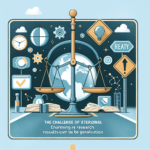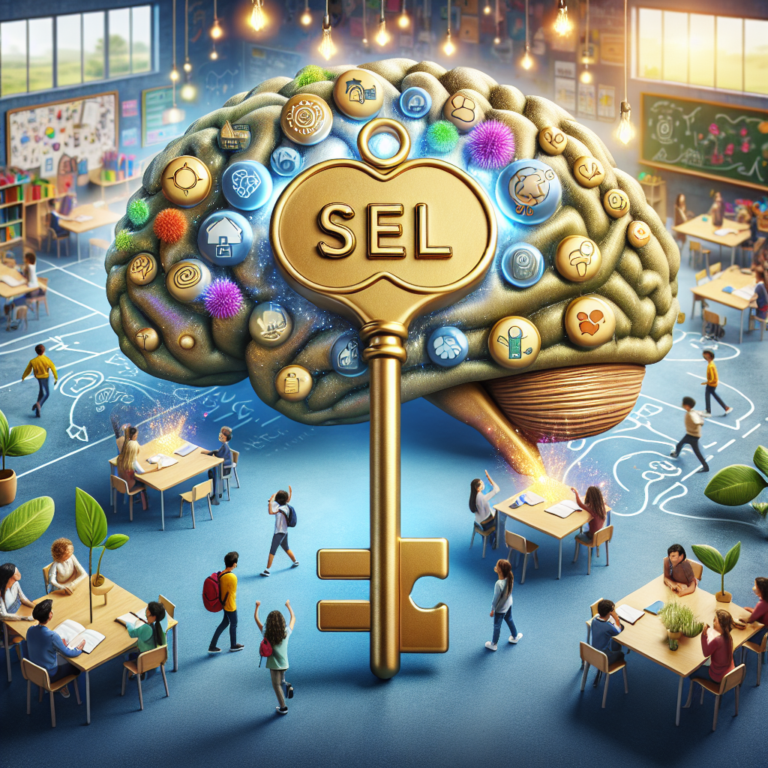
In the vast landscape of human experience, one of the most transformative forces is the power of belief. Central to this idea is self-efficacy—the belief in one’s own ability to succeed in specific situations or accomplish a task. The Power of Belief: How Self-Efficacy Shapes Our Lives serves as both a guiding principle and a catalyst for change, influencing how we approach challenges and opportunities. Let’s explore the profound impact of self-efficacy on our lives, using case studies, data, and actionable insights to shed light on this crucial topic.
Introduction: The Catalyst for Change
Imagine standing at the edge of a swimming pool, contemplating whether to dive in. If you believe you can swim, you’ll likely plunge into the water with confidence. If doubt clouds your mind, you may back away. This simple scenario illustrates how our beliefs shape our behavior and, ultimately, our destiny. The Power of Belief: How Self-Efficacy Shapes Our Lives explains not just the importance of having a positive mindset, but also how that mindset translates into action and results.
Understanding Self-Efficacy
What is Self-Efficacy?
Self-efficacy is a concept developed by psychologist Albert Bandura, referring to individuals’ beliefs about their capabilities to produce designated levels of performance. It affects how people think, feel, behave, and motivate themselves. When we cultivate self-efficacy, we lay down the foundation for resilience, motivation, and commitment.
The Four Sources of Self-Efficacy
- Mastery Experiences: Successful experiences boost self-efficacy, while failures can undermine it.
- Vicarious Experiences: Observing others succeed can strengthen our beliefs in our own abilities.
- Social Persuasion: Positive reinforcement from others helps enhance self-efficacy.
- Emotional and Psychological States: A positive mood and reduced stress can lead to higher self-efficacy.
The Impact of Self-Efficacy on Various Life Domains
Education
Self-efficacy plays a pivotal role in academic achievement. Students who believe they can succeed are more likely to engage in their studies, set challenging goals, and persist in the face of difficulties.
Case Study: A High School’s Transformation
A local high school implemented a mentorship program that paired students with mentors who provided encouragement and academic support. Over the course of a year, students’ self-efficacy scores improved, leading to a 20% increase in graduation rates. This case underscores how The Power of Belief: How Self-Efficacy Shapes Our Lives can impact educational outcomes.
Health and Wellness
In the realm of health, self-efficacy influences our choices around diet, exercise, and lifestyle. Individuals who believe they can manage their health are more likely to make beneficial choices.
Case Study: Weight Loss Success
In a weight-loss study, participants with higher self-efficacy reported more significant progress and sustained their weight loss better than those with lower self-efficacy. The participant success rate was around 70%. This illustrates the compelling link between belief in oneself and health outcomes.
| Self-Efficacy Level | Success Rate |
|---|---|
| Low | 30% |
| Medium | 50% |
| High | 70% |
Career and Professional Life
In today’s fast-paced job market, self-efficacy can be the key differentiator between career stagnation and rapid advancement. Employees who believe in their skill sets are more likely to seek promotions, tackle challenging projects, and exhibit leadership qualities.
Case Study: Corporate Leadership Development Program
A multinational corporation focused on leadership development found that employees with high self-efficacy contributed to a 15% increase in productivity. By investing in training programs that enhanced self-efficacy, the company cultivated a culture of innovation and growth.
Relationships
Self-efficacy affects how we manage relationships, enabling us to communicate, negotiate, and resolve conflicts more effectively. Individuals who believe they can succeed in their relationships tend to invest more effort and resolve conflicts healthily.
Case Study: Couples Counseling Program
In a couples counseling program, partners who rated their relationship self-efficacy as high had more successful outcomes, with a 40% increase in relationship satisfaction. This highlights how The Power of Belief: How Self-Efficacy Shapes Our Lives extends beyond personal ambitions to interpersonal dynamics.
Cultivating Self-Efficacy: Strategies for Empowerment
Setting Achievable Goals
Start small. Setting and achieving minor goals builds the foundation for larger achievements, enhancing your belief in your capabilities.
Seeking Feedback
Embrace feedback from mentors, peers, and coaches. External reinforcement can provide the encouragement needed to bolster self-efficacy.
Visualization Techniques
Engaging in visualization can enhance performance and self-efficacy. Imagine successfully achieving your goals to boost your confidence and motivation.
Positive Self-Talk
Challenge negative thoughts and replace them with affirmations. Positive self-talk can significantly shift your self-efficacy perception.
The Ripple Effect of Self-Efficacy
Community Well-Being
Self-efficacy isn’t just an individual trait; it has community-wide implications. When individuals within a community believe in their collective ability to bring about change, transformative outcomes can emerge.
Social Change Initiatives
For instance, grassroots campaigns that empower individuals through belief in their collective efficacy have led to better health, education, and economic outcomes in various communities.
Case Study: Community Development Project
In a low-income community, a development project that aimed to enhance local self-efficacy saw residents engaging in sustainable practices. The project’s success led to improved local infrastructure and increased participation in civic activities, demonstrating how The Power of Belief: How Self-Efficacy Shapes Our Lives can create a ripple effect of positive change.
Conclusion: Harnessing the Power of Belief
The journey to tapping into The Power of Belief: How Self-Efficacy Shapes Our Lives begins with understanding the immense potential that lies within us. By cultivating our beliefs and empowering ourselves through strategic actions, we not only enrich our own lives but can positively influence those around us.
Take Action
- Reflect on your beliefs surrounding various aspects of your life.
- Set a small goal this week that you believe you can achieve.
- Reach out to a mentor for guidance and encouragement.
FAQs
1. What is self-efficacy?
Self-efficacy is the belief in one’s ability to succeed in specific situations or accomplish tasks. It greatly influences motivation and behavior.
2. How can I improve my self-efficacy?
You can improve self-efficacy by setting small achievable goals, seeking constructive feedback, practicing positive self-talk, and visualizing success.
3. Can self-efficacy change over time?
Yes, self-efficacy can change based on experiences, successes, and learning. Continuous efforts to build competence can enhance self-efficacy over time.
4. How does self-efficacy affect health outcomes?
Individuals with higher self-efficacy are more likely to engage in healthy behaviors, manage stress effectively, and adhere to treatment plans, leading to better overall health outcomes.
5. What effect does self-efficacy have on relationships?
High self-efficacy in relationships can lead to more effective communication, conflict resolution, and overall relationship satisfaction.
The exploration of The Power of Belief: How Self-Efficacy Shapes Our Lives presents an opportunity—an opportunity to dive deeper into ourselves and recognize that our beliefs are the bedrock of our success. Embrace your potential and believe in the power of your influence!















